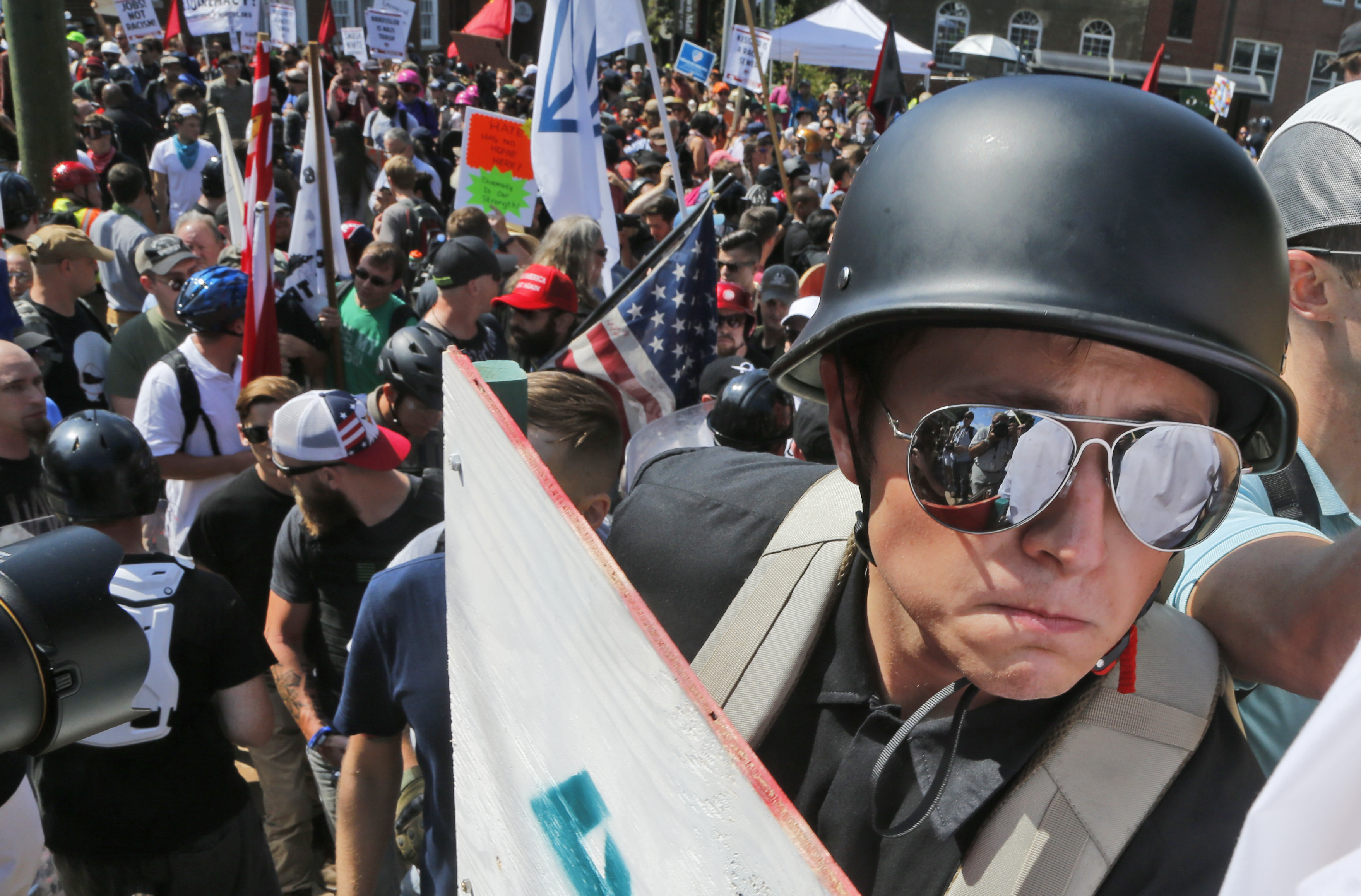
In an earlier, simpler era, news organizations had easy decisions when it came to racist statements in public. They opted to report on them in the belief that it would reveal the extent to which racism existed, even though it was hidden. The audience would be repulsed and push back, and decency would win the day. Easy call.
In the last two years, however, we’ve learned that racist views are widely held out in the open by people who are proud of them.
So now, news organizations have a tougher call. Where is the line between exposing racism and amplifying it?
NPR did little to identify the line or answer the question about what value it sees in giving a nationwide megaphone to Jason Kessler, the man behind the “Unite the Right” rally, being held a year after his earlier rally led to the deaths of a woman and two state troopers.
For everyone saying, re: the Jason Kessler interview, "it's important to understand what we're up against!!"
Newsflash literally every nonwhite person understands what they're up against and if you have to listen to NPR giving a nazi this platform to "understand" well…
— 🌼Elle🐱Gato🌼(they/them) (@ellle_em) August 10, 2018
NPR warned its audience before this morning’s interview between Kessler and host Noel King that “some of what you’re about to hear is racist and offensive,” a clear signal to suggest that maybe morning radio should take a pass on racism and offensive chatter.
No matter. Kessler was invited to state what he believes.
“I’m not a white supremacist. I’m not even a white nationalist. I consider myself a civil and human rights advocate focusing on the underrepresented Caucasian demographic,” he said.
Some sort of ethical journalism guideline at NPR prevented King from asking what every other decent listener was asking, “are you freaking kidding me?”
So she had to ask, instead, to explain. More airtime.
“They’re the only group that’s not allowed to organize into political organizations and lobbies and talk exclusively about what interests are important ot them as a people. You have blacks who are able to organize with Black Lives Matter or the NAACP. You have Jews who have the ADL. Muslims have CAIR…”
The interview was taped and, in a poor edit, NPR eliminated the rest of his answer, allowing King instead to claim “I don’t really understand what you mean” in asking for more.
She knows. Everyone knows. Everyone’s heard it before.
Kessler said his march is a response to “an attack on the First Amendment,” to which King asked how the First Amendment can be under attack when “you’re about to march on Washington?”
“I’m trying to explain it to you, but you’re not listening,” Kessler said. “Who’s trying to oppress the rights of white folks who are standing up for themselves are Antifa, who come there to use violence to shut down speech.”
Kessler has invited a former Klan leader, a neo-nazi supporter, and someone who’s left anti-Semitic messages on the answering machines of Jewish Americans saying the Holocaust didn’t happen.
“Why did you invite them to your rally?” King asked.
“I don’t think you know anything about my rally,” Kessler said. “I haven’t announced who the speakers are yet to anybody. You’re going based on left-wing rumor mills.”
“I’m citing the National Parks Service,” King responded.
“And I’ve publicly stated numerous times that I don’t want any neo-Nazis at my rally,” Kessler said.
King took a timeout in her interview there to say she wanted to ask Kessler more about his position on the differences in the races — IQ, for example.
Check the calendar. It’s 2018. And NPR is inquiring about the IQ differences in the races. She noted that Kessler bases his opinions on the work of Charles Murray at the American Enterprise Institute and points out, accurately, that the work has been debunked.
So why give someone a microphone to talk about it if it’s been debunked? This is the normalization of racism.
“What are the differences?” she asked Kessler, returning to her interview.
Racism followed. Predictably.
And theater.
“You sound like someone who wants to tick people off,” King said.
“You sound like somebody who doesn’t respect science,” Kessler countered.
“Oh come on. Charles Murray? Charles Murray? Really?” King said.
Defending his decision to stage another Charlottesville rally, Kessler continued, “saying there’s really no place that’s OK for me to speak.”
There’s always NPR.
But why?
Congrats to NPR & @NoelKing for re-legitimizing Jason Kessler in spectacularly inept fashion. As though ppl will all nod their heads when the reporter says "oh come on, Charles Murray?"
Low-information listeners to this interview will mainly conclude that Kessler is Important. https://t.co/lZnBnNd7BL
— domhnall 🍑 (@Domhnall_G) August 10, 2018
Archive: When should a racist get air time? (NewsCut)
